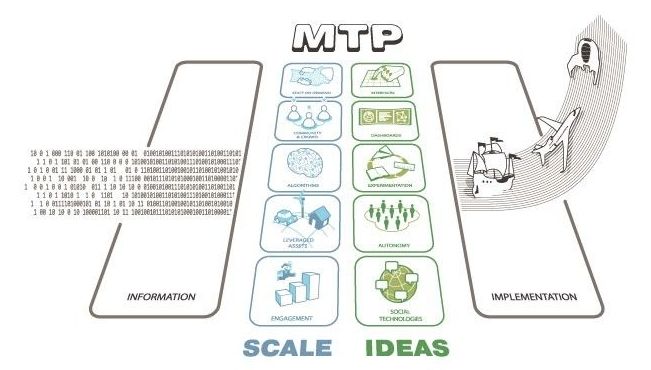Page 9120
Feb 14, 2019
A Trojan Horse Approach to Cancer
Posted by Steve Hill in categories: biotech/medical, electronics
A research team led by Professor Johann de Bono at the Institute of Cancer Research, London has successfully tested a new drug that has infiltrated different forms of cancer in an ongoing human trial [1].
The drug is called tisotumab vedotin (TV) and works like a ‘Trojan Horse’ by hiding a cancer-killing payload inside an antibody, which allows it to infiltrate the tumor and attack it from the inside.
The antibody seeks out a surface receptor on tumor cells known as ‘tissue factor’ (TF). TF is expressed by many tumor cells and contributes to a variety of pathological processes, including thrombosis, metastasis, tumor growth, and tumor angiogenesis. Once the antibody has located the TF receptor, it binds to it, and the cancer-killing payload is able to enter the tumor cell and destroy it from the inside.
Feb 14, 2019
NASA to Advance Unique 3D Printed Sensor Technology
Posted by Klaus Baldauf in categories: 3D printing, robotics/AI, space travel

A NASA technologist is taking miniaturization to the extreme.
Continue reading “NASA to Advance Unique 3D Printed Sensor Technology” »
Feb 14, 2019
Neural processing during trauma and lifetime adversity interact to increase core symptom of PTSD
Posted by Xavier Rosseel in categories: biological, neuroscience
Lifetime adversity and increased neural processing during a traumatic event combine to increase the frequency of intrusive traumatic memories and the distress they cause, according to a new study in Biological Psychiatry: Cognitive Neuroscience and Neuroimaging. The increased neural processing was found in brain regions important for emotion and memory. The involuntary recollection of traumatic events is a core symptom of posttraumatic stress disorder (PTSD), and the findings could help explain why some people are susceptible to the effects of traumatic experiences and others are resilient.
“Understanding why some people develop intrusive thoughts of a stressful or traumatic event and others do not is an important step towards preventing and treating posttraumatic stress disorder,” said Cameron Carter, MD, Editor of Biological Psychiatry: Cognitive Neuroscience and Neuroimaging.
Due to the nature of real-life trauma, which happens randomly and encompasses many different kinds of adversity, it is impossible to examine how neural processing during natural events contributes to PTSD. Researchers at the University of Salzburg, Austria, have now completed the first study of two well-known risk factors of PTSD, using fMRI to measure brain function during experimental trauma. After watching disturbing films of severe interpersonal violence, the study participants reported how often they experienced intrusive memories of the films, and how distressing the memories were. “This allowed us to study how the brain deals with intensely emotional events,” said lead author Julina Rattel, MSc, a Ph.D. student in the laboratory of senior author Frank Wilhelm, Ph.D.
Feb 14, 2019
Human cells reprogrammed to create insulin
Posted by Mike Ruban in category: biotech/medical
The destruction of a single kind of insulin-producing cell in the pancreas can lead to diabetes — but a study suggests that other cells could be modified to take its place and help to control blood sugar levels.
The results raise hopes that ‘reprogrammed’ insulin-producing cells could be used as treatment for diabetes, but the approach has so far only been tested with human cells in mice studies.
In a study published on 13 February in Nature, researchers report coaxing human pancreatic cells that don’t normally make insulin, a hormone that regulates the amount of glucose in the blood, to change their identity and begin producing the hormone.
Feb 14, 2019
Exposure to Glyphosate-Based Herbicides and Risk for Non-Hodgkin Lymphoma: A Meta-Analysis and Supporting Evidence
Posted by Xavier Rosseel in category: genetics
Glyphosate is the most widely used broad-spectrum systemic herbicide in the world. Recent evaluations of the carcinogenic potential of glyphosate-based herbicides (GBHs) by various regional, national, and international agencies have engendered controversy. We investigated whether there was an association between high cumulative exposures to GBHs and increased risk of non-Hodgkin lymphoma (NHL) in humans. We conducted a new meta-analysis that included the most recent update of the Agricultural Health Study (AHS) cohort published in 2018 along with five case-control studies. Using the highest exposure groups when available in each study, we report the overall meta-relative risk (meta-RR) of NHL in GBH-exposed individuals was increased by 41% (meta-RR = 1.41, 95% CI, confidence interval: 1.13–1.75). For comparison, we also performed a secondary meta-analysis using high-exposure groups with the earlier AHS (2005), and we determined a meta-RR for NHL of 1.45 (95% CI: 1.11–1.91), which was higher than the meta-RRs reported previously. Multiple sensitivity tests conducted to assess the validity of our findings did not reveal meaningful differences from our primary estimated meta-RR. To contextualize our findings of an increased NHL risk in individuals with high GBH exposure, we reviewed available animal and mechanistic studies, which provided supporting evidence for the carcinogenic potential of GBH. We documented further support from studies of malignant lymphoma incidence in mice treated with pure glyphosate, as well as potential links between GBH exposure and immunosuppression, endocrine disruption, and genetic alterations that are commonly associated with NHL. Overall, in accordance with evidence from experimental animal and mechanistic studies, our current meta-analysis of human epidemiological studies suggests a compelling link between exposures to GBHs and increased risk for NHL.
Feb 14, 2019
Face recognition technology in classrooms is here – and that’s ok
Posted by Genevieve Klien in categories: education, robotics/AI
New technologies like facial recognition are coming – whether we like it or not. We can’t turn back the tide, but we can manage new technology to do the least harm and most good.
Feb 14, 2019
What Happens If Russia Cuts Itself Off From the Internet
Posted by Steve Nichols in category: internet
State media has reported that Russia will attempt to disconnect from the global internet this spring. That’s going to be tricky.
Feb 14, 2019
Forget startups, ExOs (Exponential Organizations) are the new way to innovate
Posted by Klaus Baldauf in categories: business, internet
Salim Ismail and Francisco Palao
Nothing lasts forever and the startup era is no exception. Exponential Organizations (ExOs) are a new breed of organizations disrupting entire industries by scaling as fast as exponential technologies do. In addition, the ExO model is the framework that finally allows both entrepreneurs and corporations to speak the same language and disrupt industries together.
In the late 90s, the emergence of the Internet brought new opportunities to most existing industries and created vast new markets. As a result, a new type of business peaked in that decade: the technology startup.
Continue reading “Forget startups, ExOs (Exponential Organizations) are the new way to innovate” »
















